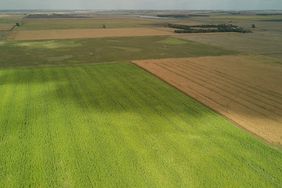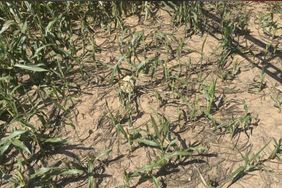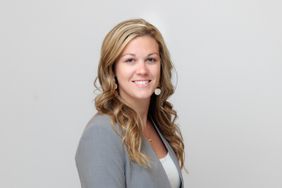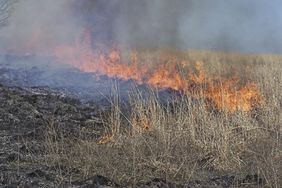:max_bytes(150000):strip_icc()/FarmWithCorn-WideShot-2000-bf5199aab6f94f1abd3536c2b1e8793f.jpg)
It's easy to overinsure due to fear or to underinsure due to excessive thriftiness. You have a broad spectrum of insurances to choose from, and picking the right ones and the right levels of coverage is critical to keeping your farm operation afloat.
One worrisome risk is wandering trespassers. Someone you don't even know is out walking in your woods or riding an ATV. They fall in a hole, crash into a tree, or get hung up in a fence wire. You should not have liability, but you could be sued nevertheless. You need farm liability protection for $1 million or more, just in case some jury decides that you should have maintained a safer environment in your woods. This kind of coverage will be included with your farm policy on your home parcel (but not on non-adjacent parcels). Normally, liability coverage for some limited number of acres, like 100 or 200 acres, is included without additional charges. For very large home parcels or outlying fields, you will need to purchase additional liability protection through what the insurance companies call endorsements or riders. Those are simply add-ons to the basic policy.
One detail to stay up on is what the insurance company is using for replacement cost on your house. If you are sure you could rebuild your house on its existing foundation for $200,000, don't let the insurer raise the coverage to $300,000 through multiple annual increases. There is some flexibility to push the coverages and premiums down. One mistake that many people make is never reexamining or rebidding their insurances. Financial circumstances change for insurance carriers, so check out premiums at least every few years.
A normal homeowner's policy covers outbuildings at a standard level, like 10% of the home value, but a farm policy allows you to pick and choose which buildings to cover and how much value to place on each. This is helpful, because some old sheds may not be worth paying to insure, and some newer buildings may get improvements that warrant extra coverage.
Equipment coverage is huge, of course. You could have a $250,000 tractor catch fire and burn to a crisp. Tractors with large loans are generally going to have insurance requirements by the lender. Even if they don't, you will certainly want adequate replacement coverage on any six-figure tractors rolling around.
You can insure your livestock and each piece of farm equipment individually with endorsements, and you can set values on each of those items.
However, there is an alternate method to insure them – through a blanket policy. With that, you set a dollar limit, say $500,000 to cover all equipment. To do this, an insurance company will require you to list every piece of equipment. It doesn't want you to cover $1 million of equipment with a $500,000 policy.
Besides your farm policy, you are certainly going to have automobile insurance. Having multiple policies at one carrier can often yield premium discounts. So, ask for discounts on nonfarm auto insurance from your farm policy carrier. Note that a vehicle above 1 ton probably has to be on a more expensive commercial policy.
To reduce premiums, consider taking comprehensive coverage off of vehicles that have little value left.
Health insurance has been the subject of much discussion in recent years. Most farmers have to find individual coverage. Look for a health insurance specialist, as many agents don't want to touch that market lately. Common wisdom is that you will be basically self-insuring for less than catastrophic medical problems, which will mean a high-deductible plan coupled with an HSA.








